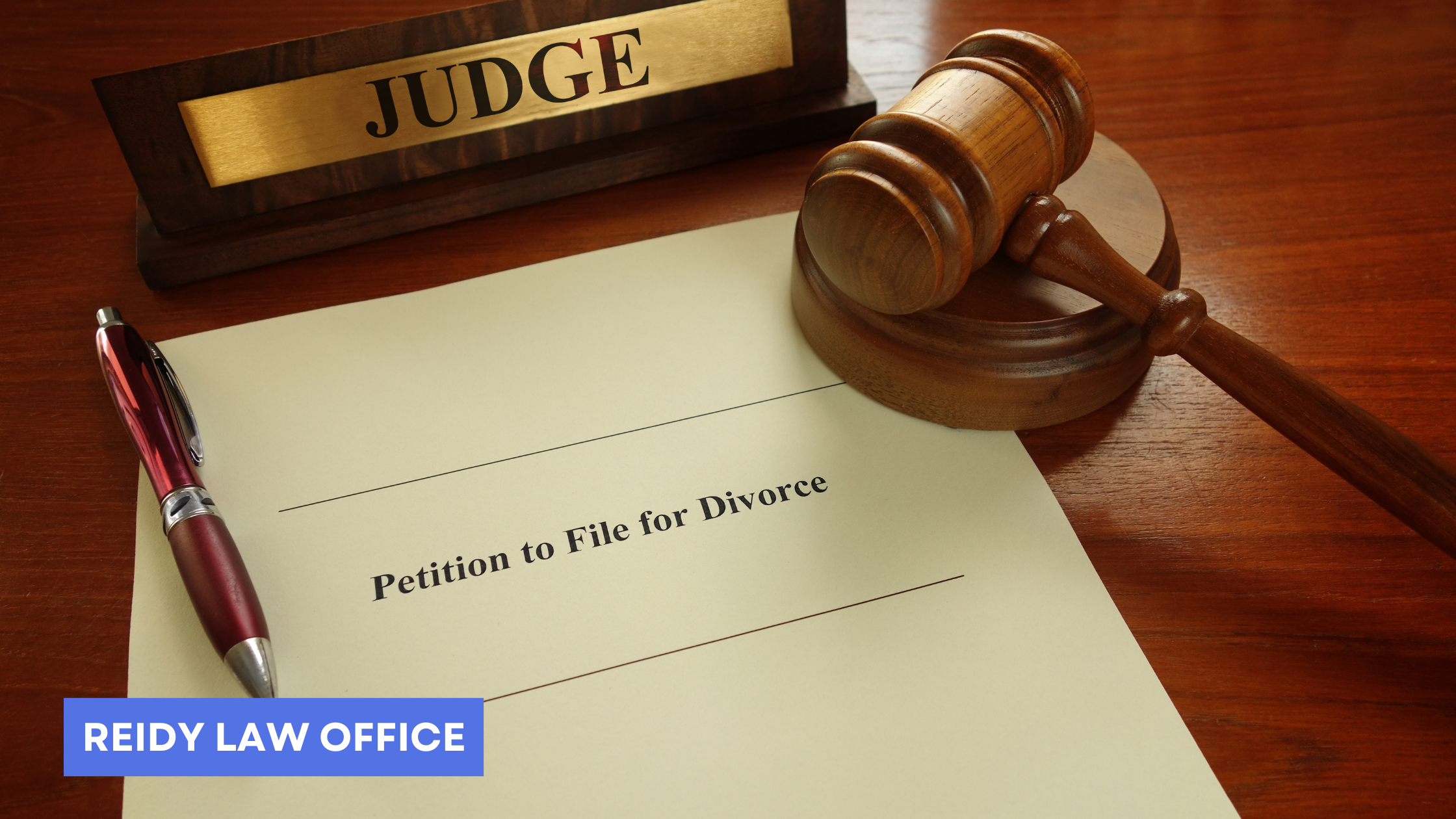The cost of divorce in Illinois can vary widely depending on several factors, including the complexity of the case, whether the divorce is contested or uncontested, and the attorney’s fees. Understanding the potential costs upfront is crucial for managing expectations and planning your finances. In this guide, we’ll break down the different expenses associated with divorce in Illinois, from filing fees to legal costs, and provide tips for keeping costs as manageable as possible throughout the process.

The cost of divorce is scary for anyone considering a divorce. It is not as bad as you think. You probably are familiar with a retainer, but before you start down the path of the total cost, it is important to understand what you are paying for. Your out-of-pocket payment includes both “costs” and “fees.” So read on below to understand the basics.
You are probably thinking, “that’s great, but how much will MY divorce cost me?” That is a great question and one that should not be answered without doing a full analysis of your situation. We believe that anyone who tells you your cost without understanding your case fully is telling you what you want to hear. We will not do that. It is important to understand that your total cost is different from your retainer.

Several factors play a significant role in determining the cost of divorce in Illinois, and understanding these can help you prepare financially for the process. One of the primary factors is whether your divorce is contested or uncontested. If both parties agree on the terms, such as asset division and child custody, the divorce is typically less expensive, as it involves fewer court hearings and legal negotiations. However, if the divorce is contested, with disagreements over major issues, the cost of divorce in Illinois can rise significantly due to the need for more legal work, including mediation, court appearances, and extended attorney fees.
Another key factor is the complexity of your financial situation. If you or your spouse have significant assets, investments, or complex debts, the divorce will likely require more time and expertise to resolve these matters, increasing the overall cost. Similarly, if children are involved and custody or support arrangements need to be negotiated, this will add additional costs for legal services and potentially expert involvement.
Additionally, attorney fees are a major component of the cost of divorce in Illinois. Lawyers typically charge hourly rates, so the more time spent negotiating or in court, the higher the cost will be. It’s essential to consider the attorney’s experience, as more experienced lawyers may charge higher rates but could potentially resolve matters more quickly.
With these factors in mind, it’s important to evaluate how your case may play out to better estimate the financial commitment involved. Now that we’ve covered the factors, let’s explore the average divorce filing fees in Illinois.

The cost of divorce in Illinois begins with the filing fees, which are necessary to officially start the divorce process. On average, the filing fee for a divorce in Illinois ranges between $250 and $400, depending on the county where the divorce is filed. This fee typically covers the costs of processing the divorce petition and other essential paperwork. Some counties may have additional fees for specific services, such as serving divorce papers or requesting copies of documents, which can slightly increase the overall filing costs.
In addition to the initial filing fee, there may be other court-related fees to consider, such as fees for motions, hearings, or discovery, which are charged throughout the divorce process. The cost of divorce in Illinois can therefore increase if your case requires additional court time or documentation. It’s important to check with your local courthouse or consult with your attorney to get a more precise estimate of these fees.
Understanding these basic filing fees is just the start of managing the overall financial impact of a divorce. Now that we’ve covered the filing fees, let’s dive into how attorney fees affect the cost of divorce in Illinois.
Attorney fees are one of the most significant factors influencing the cost of divorce in Illinois, and understanding how they work is crucial to budgeting for your divorce. In Illinois, attorneys typically charge hourly rates, which can range from $150 to $500 per hour, depending on the attorney’s experience and the complexity of your case. For a simple, uncontested divorce, attorney fees will likely be on the lower end of the spectrum. However, if your divorce involves disputes over assets, child custody, or spousal support, the fees can quickly add up, especially if the case goes to trial or requires extensive legal work.
The cost of divorce in Illinois can also be affected by the attorney’s approach to your case. Some lawyers offer flat fees for straightforward cases, but for most divorces, hourly billing is the standard. Additionally, you may incur costs for consultations, drafting documents, and court appearances, all of which contribute to the total attorney fees. In more contentious divorces, where negotiations and court appearances are frequent, attorney fees can easily become the largest expense in the process.
With attorney fees playing such a substantial role in the cost of divorce in Illinois, it’s important to have a clear understanding of the billing structure and to keep open communication with your lawyer to avoid surprises. Now that we’ve discussed how attorney fees influence costs, let’s look at the difference between uncontested and contested divorces and how they impact overall expenses.
The primary difference between an uncontested and contested divorce in Illinois is how much the spouses agree on during the process. In an uncontested divorce, both parties are in agreement on key issues such as asset division, child custody, and spousal support. This typically leads to a quicker, less expensive divorce, significantly reducing the cost of divorce in Illinois. Since there are fewer disagreements and no need for prolonged legal battles, the attorney’s involvement is minimal, and the court’s time is usually limited, making it the most cost-effective option for many couples.
On the other hand, a contested divorce occurs when spouses cannot agree on significant issues, which requires more time, legal intervention, and often court hearings. These types of divorces are much more expensive due to the need for additional legal work, including negotiations, mediation, and trial preparations. The cost of divorce in Illinois can escalate quickly in contested cases as both parties may hire experts, request multiple motions, and attend several hearings. As a result, contested divorces often lead to higher attorney fees and extended timelines, making them a much more costly option compared to uncontested divorces.
Understanding the difference between these two types of divorces can help you gauge how the cost of divorce in Illinois will unfold in your situation. Now that we’ve explored contested versus uncontested divorces, let’s take a closer look at additional costs for child custody and support issues.
Yes, child custody and support issues can significantly increase the cost of divorce in Illinois. When children are involved, the divorce process becomes more complex, requiring additional legal work and often expert involvement. If both parties cannot agree on custody arrangements or child support, the case may require mediation or even a trial, both of which contribute to higher costs. Mediation, while less expensive than a trial, still involves attorney fees and possibly the cost of hiring a mediator. If the case proceeds to court, the cost of divorce in Illinois can escalate quickly, as additional hearings, expert witnesses, and extended legal representation are typically necessary.
In addition to the legal fees, there may be costs associated with calculating child support and custody evaluations, which often require input from financial experts or child psychologists. These evaluations can add hundreds or even thousands of dollars to your divorce expenses. Understanding that child-related issues can increase the overall cost of divorce in Illinois is crucial for preparing financially for a divorce that involves children.
With this in mind, it’s important to plan ahead for potential additional costs related to child custody and support. Let’s now take a look at strategies for minimizing the cost of divorce in Illinois.

Minimizing the cost of divorce in Illinois starts with understanding your options and taking proactive steps to keep expenses under control. One of the most effective ways to reduce costs is to pursue an uncontested divorce, where both parties agree on the key issues such as property division, child custody, and support. Since fewer legal resources and court interventions are required, an uncontested divorce is generally much less expensive than a contested one. You can also minimize the cost of divorce in Illinois by working collaboratively with your spouse, potentially avoiding the need for costly litigation or extended negotiations.
Additionally, consider using mediation as an alternative to litigation. Mediation can help resolve disagreements more quickly and affordably than going to trial, which is often a lengthy and expensive process. By reaching agreements outside of court, you can significantly lower attorney fees and reduce the overall financial burden of the divorce. Staying organized, keeping communication clear, and negotiating directly with your spouse can further help in reducing unnecessary legal fees.
Now that we’ve discussed ways to minimize divorce costs, let’s explore how to estimate the total cost of divorce in Illinois based on your specific circumstances.
Estimating the total cost of divorce in Illinois can be challenging due to the various factors involved, but there are several strategies you can use to get a general idea of what to expect. First, consider the type of divorce you are pursuing—uncontested or contested. An uncontested divorce is typically quicker and cheaper, so you can expect lower costs compared to a contested divorce, which often involves additional court hearings, expert evaluations, and extensive legal work. Understanding the complexity of your financial situation, including the number of assets and liabilities to divide, as well as whether child custody or support is an issue, will also impact the cost of divorce in Illinois.
To get a more accurate estimate, you can consult with a divorce attorney who can assess your case and provide a breakdown of potential costs based on your specific circumstances. Many attorneys offer free or low-cost consultations, which can help you understand the scope of your divorce and estimate the total financial commitment. Additionally, consider using online divorce cost calculators, which can give you a rough estimate based on your situation, though these tools may not account for every detail of your case.
With a clearer picture of how to estimate divorce costs, let’s now look at how the complexity of your case can affect the cost of divorce in Illinois.
Yes, the complexity of your case plays a significant role in determining the cost of divorce in Illinois. The more complex the issues involved, the more time and effort your attorney will need to invest, which translates into higher legal fees. For instance, if you and your spouse have significant assets, multiple properties, or complicated financial portfolios, dividing these assets fairly may require the assistance of financial experts, appraisers, or forensic accountants. These additional professionals can increase the cost of divorce in Illinois substantially.
Similarly, if there are children involved and you are facing disputes over custody, visitation, or child support, the case becomes more intricate. Child custody evaluations, expert testimony, and extended mediation sessions can add to the overall expense. In contrast, a simpler divorce with fewer assets and no children will typically incur lower costs, as it requires less time and fewer resources. The more issues that need to be addressed and negotiated, the higher the total cost will likely be.
With these complexities in mind, let’s now look at some hidden costs that can increase the cost of divorce in Illinois even further.
In addition to the obvious expenses like attorney fees and filing costs, there are several hidden costs in divorce cases that can significantly increase the cost of divorce in Illinois. One of the most common hidden expenses is the cost of expert witnesses or specialists, particularly in cases involving complicated asset division or child custody disputes. For example, if one spouse has a business or complex investments, hiring a financial expert to appraise these assets can add thousands of dollars to your divorce expenses. Similarly, in contentious custody cases, the court may appoint a guardian ad litem or request child custody evaluations, which can be costly but necessary to resolve disputes.
Another hidden cost comes from the time commitment involved in gathering documentation and preparing for hearings. The need to collect detailed financial records, tax returns, or documents related to your children’s needs can be time-consuming and may require assistance from professionals. In some cases, spouses may also need to rent temporary housing or cover other transitional expenses during the divorce process, adding further to the cost of divorce in Illinois.
Understanding these potential hidden costs can help you avoid unexpected financial burdens during your divorce. With a clearer picture of the hidden costs, let’s now examine how you can finance the cost of divorce in Illinois without breaking the bank.
Financing the cost of divorce in Illinois can be challenging, prompting individuals to consider various options. While utilizing personal savings or liquid assets is ideal, many may lack sufficient funds. Alternatives include taking out personal loans or using credit cards, though these can lead to additional debt. Homeowners might explore home equity loans or lines of credit, but this option also carries risks and should be approached with caution.
Some attorneys offer payment plans or flexible billing arrangements to help ease the financial burden of divorce. This allows you to pay attorney fees over time, rather than in a lump sum, making the cost of divorce in Illinois more manageable. Additionally, in some cases, you may qualify for legal aid or pro bono services if you meet certain financial criteria, which can significantly reduce the overall cost. It’s important to discuss your financial situation openly with your attorney to find the best solution for your case.
Now that we’ve discussed financing options, let’s look at how you can ensure a transparent process when managing your divorce costs.
You may be surprised to know that the answer is yes! In fact, Illinois has created standard forms that will work for many people. If your situation fits into the blanks that the State has provided, you may not need a lawyer. If your situation does not fit into the preformed boxes, you should consider hiring an attorney before you make a mistake that costs more in the long term.
Working with Reidy Law Office offers clients professional and compassionate support in family law matters, including divorce, child custody, spousal support, and asset division. The firm’s expertise covers Illinois-specific family law issues, focusing on providing customized legal solutions for each client’s unique needs.
From guiding clients through the complexities of divorce to representing their interests in court, Reidy Law Office prioritizes a clear, client-centered approach. They can assist with both contested and uncontested divorces, help clients navigate property division, and work through challenging matters like parental responsibilities and visitation rights. The team is also skilled in alternative dispute resolution methods, including mediation, to help clients reach amicable agreements without the stress of a court trial.
For more information or to schedule a consultation with Reidy Law Office, you can visit their website directly at reidylawoffice.com

Contemplating divorce is a profound step that involves emotional, financial, and legal considerations. Our "Am I Ready for Divorce?" checklist is a sensitively designed tool that helps individuals thoughtfully assess their readiness for this life-altering decision. This resource aims to guide you through introspection and practical evaluation, ensuring that your decision to pursue a divorce is made with both clarity and foresight.
In any legal or financial undertaking, having a comprehensive and organized set of financial records is critical. Our "Financial Records Checklist" is crafted to give you the clarity and control needed to manage your finances effectively. Whether you're preparing for tax season, undergoing legal proceedings, or simply aiming to get your financial house in order, this checklist is an indispensable tool for ensuring nothing is overlooked.
Divorce not only signifies a major shift in the lives of the parents but also heralds a period of adjustment and emotional transition for the children involved. Our meticulously crafted checklist, "Do Your Kids Need Therapy After Divorce?" is a vital resource for parents concerned about the psychological welfare of their children during and after a divorce. This checklist serves as a compassionate guide for recognizing signs of distress and taking proactive steps to support your child's mental health.
Divorce can be a complex and emotionally taxing journey, but when both parties agree on the key terms, an uncontested divorce can offer a more amicable and efficient path forward. Our Uncontested Divorce Checklist is a comprehensive guide designed to provide individuals with a clear roadmap through the legal process when there are no children involved. This free resource ensures that you are well-prepared, informed, and ready to proceed with confidence.